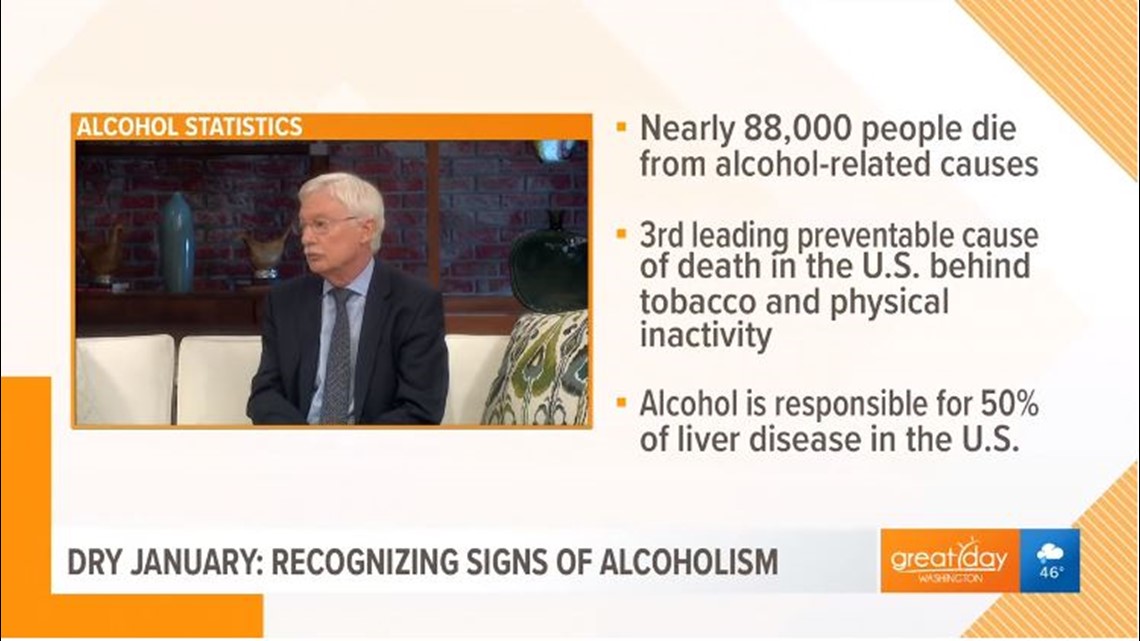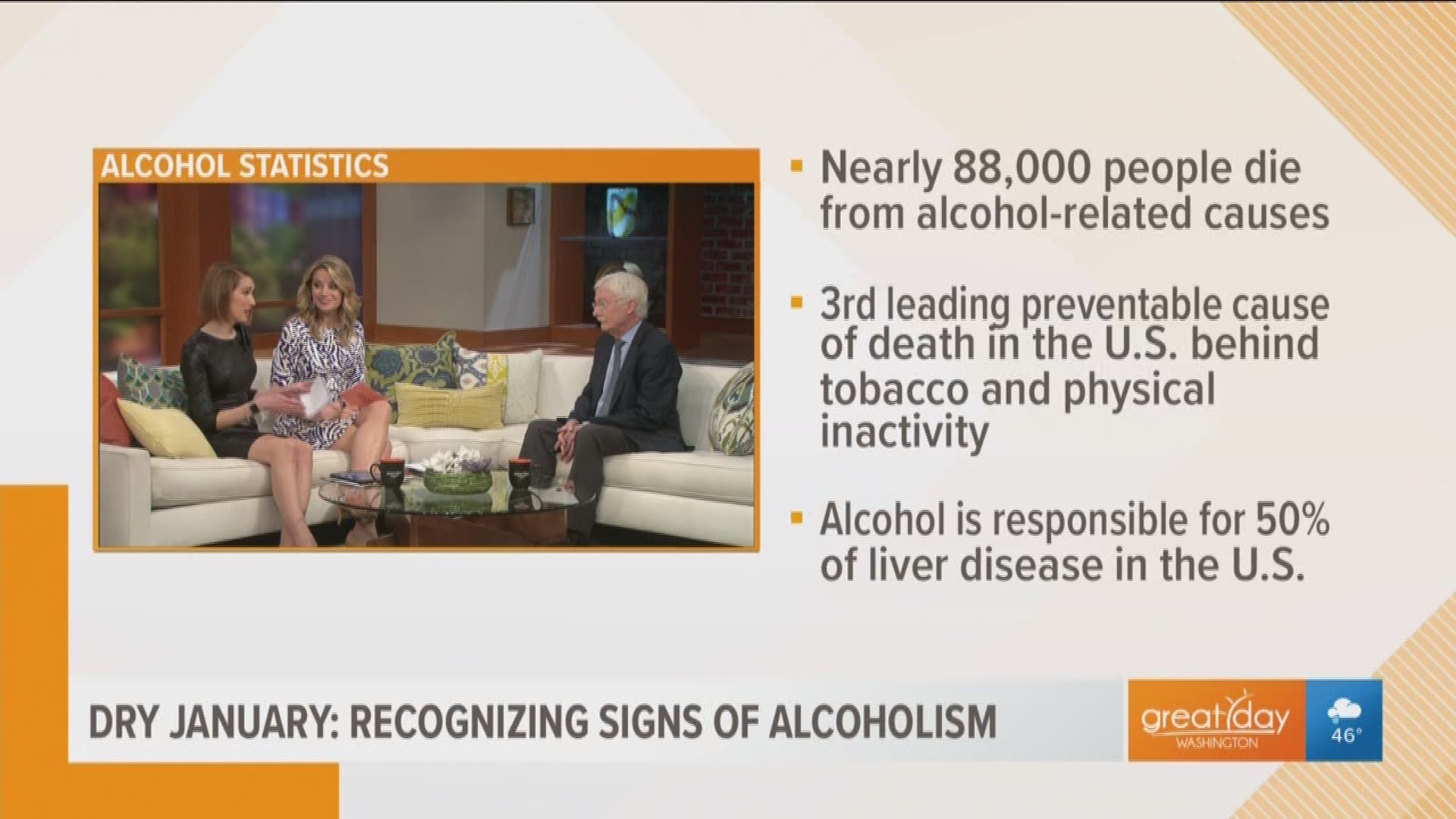WASHINGTON — Many Americans understand that alcoholism is detrimental to overall health, but it still can be considered a 'hidden addiction'. In fact, according to the National Institute of Alcohol Abuse and Alcoholism (NIAAA), about 14 million adults in the U.S. have alcohol abuse disorder, and only 10% are getting treatment.
Dr. George Koob, Director of NIAAA says, "We have a problem with alcohol in the United States, I call it the 'hidden addiction'. Everybody knows about it but nobody wants to talk about it."
"Dry January is a great opportunity to re-evaluate your relationship with alcohol. It also provides choices, so when you go to a party and socializing and you want to be one of the Dry Januaries it's kind of a choice you can make with being stigmatized for not drinking or not ridiculed for not drinking," adds Dr. Koob.
After taking the month off you may find yourself in a better overall healthy state.
"If you're sleeping better, if you're digestive system's better, if you're back with your exercise program, you've got a lot of vim and vigor for work, then your body's telling you something."
This may be surprising to some, but it seems that millennials are active in providing more activities and programs for those who want to have fun without alcohol. They include dry bars, sober curious, silent dance parties, and of course dry January.
Dr. Koob notes, "I think we're in the beginning of a cultural change in relation to alcohol."
"There's another group that seems to be more interested in being more alert and functioning on Monday morning rather than hung over," adds Dr. Koob.
The NIAAA treatment navigator is one of several tools that people can use if they fear that they or a loved one is dealing with an alcohol addiction, and this can be lifesaving.


Dr. Koob urges families to take a look at the treatment navigator which provides information, facts, treatment options, and facilities, "It's really a useful tool for learning about alcohol use disorders, helping families interact in this domain, and finding a place for treatment."
For more information on NIH's National Institute of Alcohol Abuse and Alcoholism visit www.niaaa.nih.gov.

